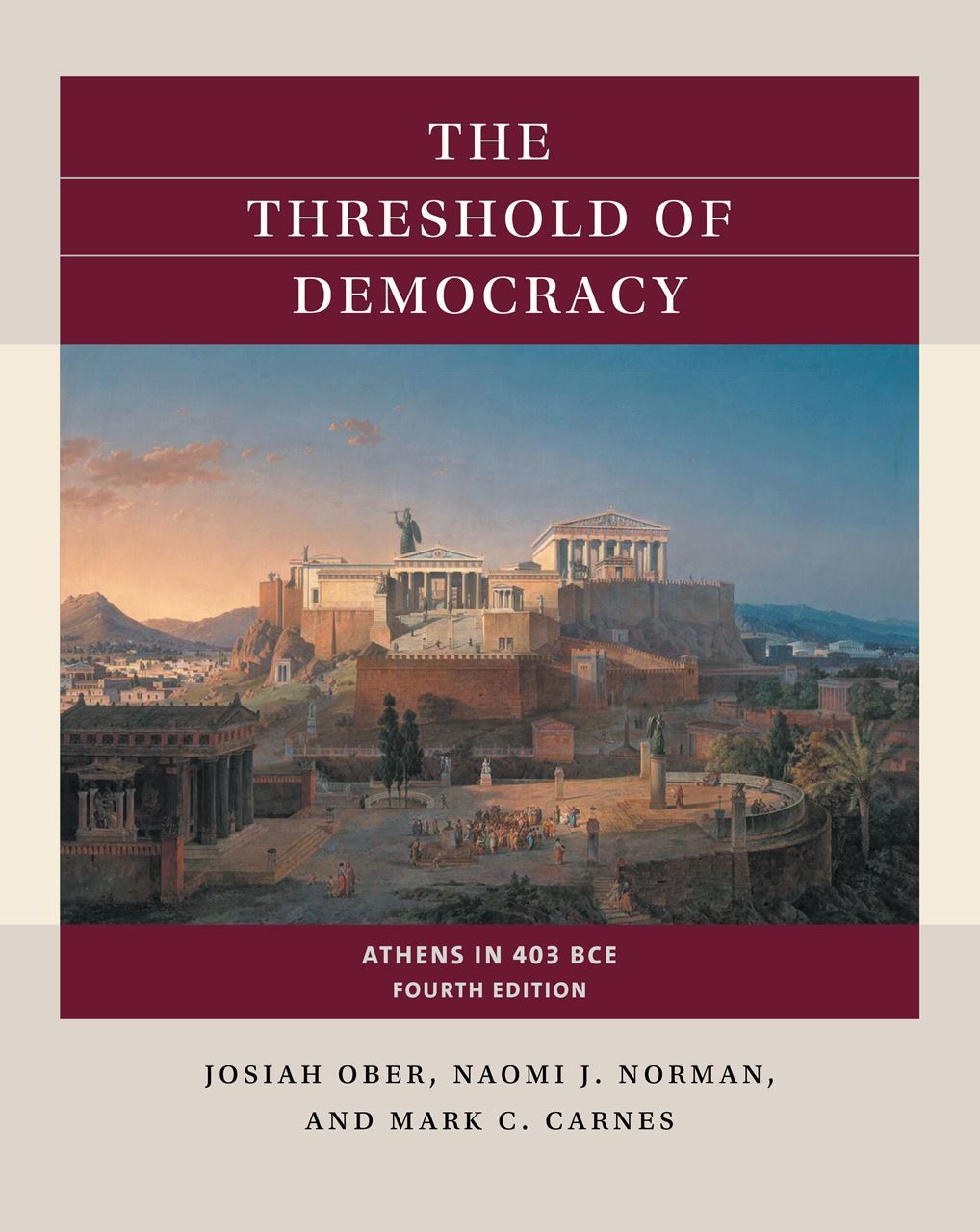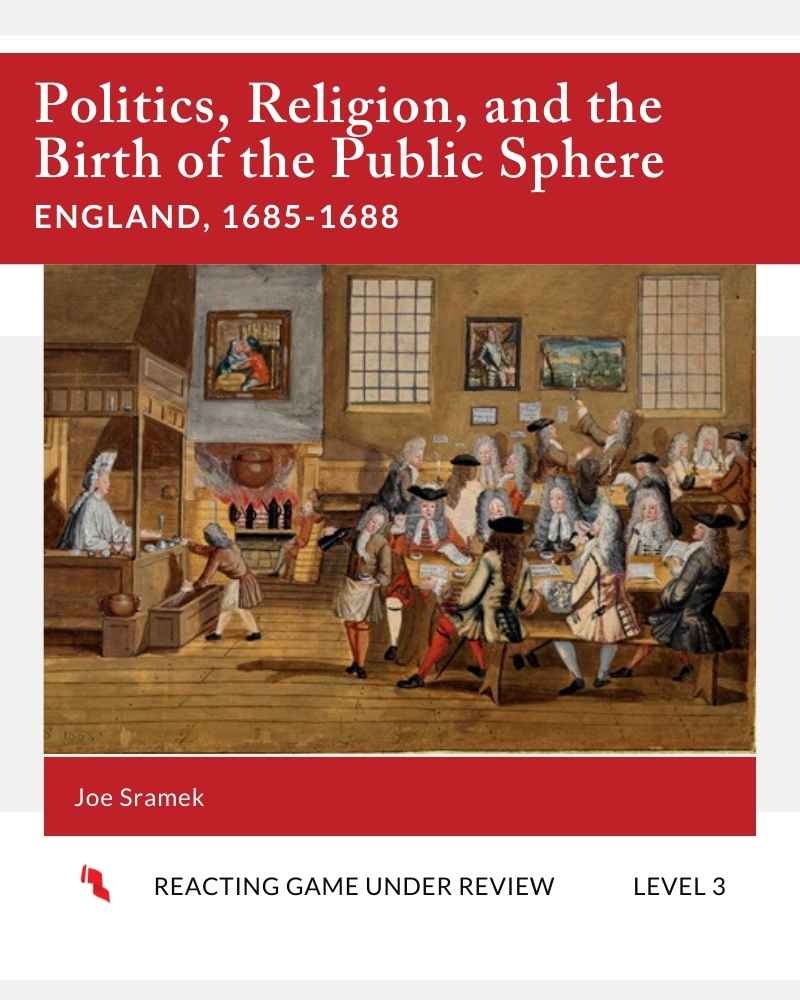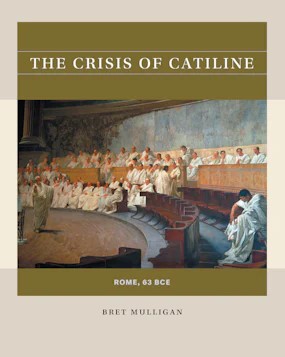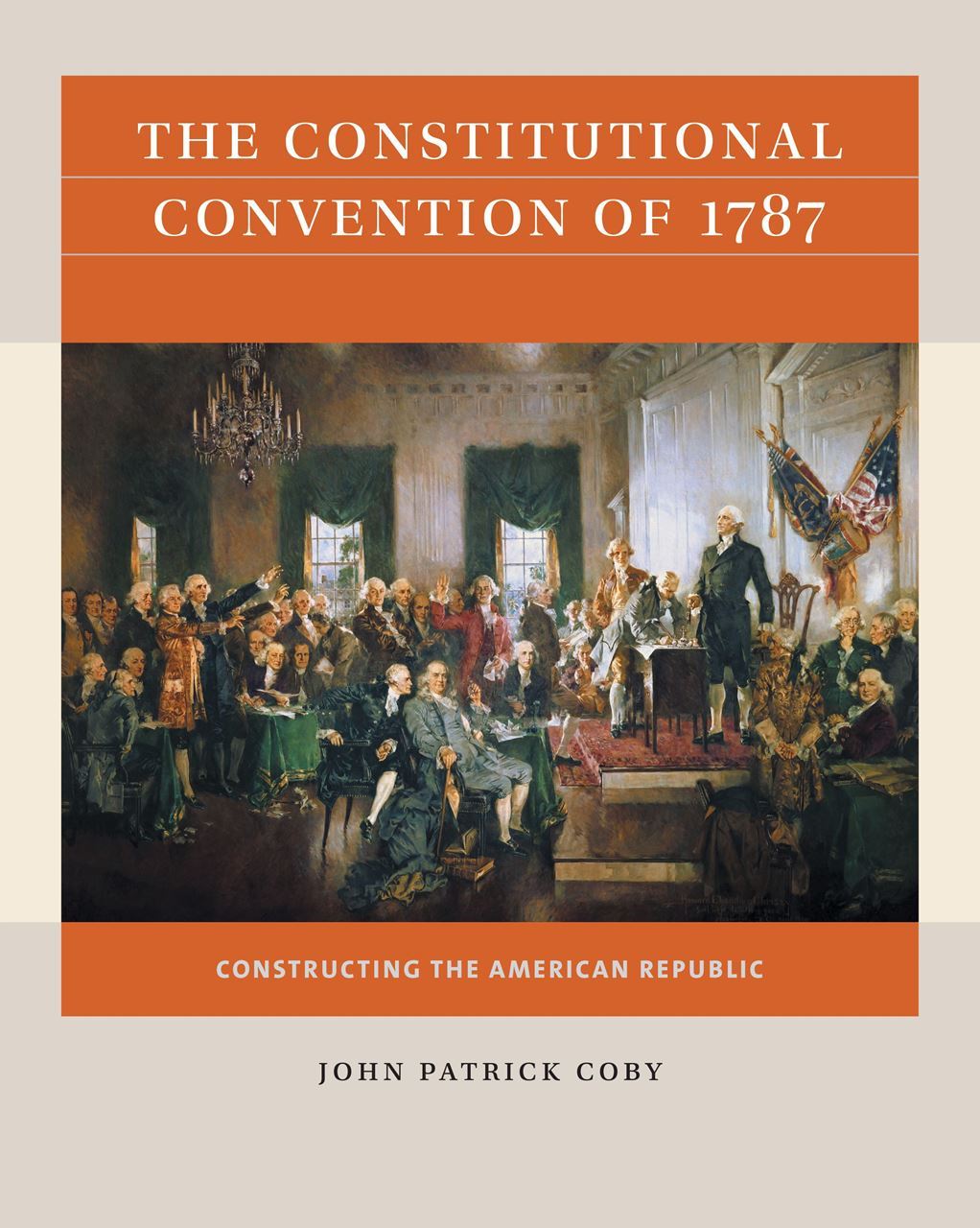 |
Democracy is in peril in ancient Athens
|
Details
|
Using the Game |
Class Size and Scalability
This game is recommended for classes with 11-50 students. Expanded role sheets and an expanded role assignment chart are available for Reacting Consortium Members.
For this game, 7-15 class sessions are recommended (2 to 5 setup sessions, 4 to 8 game sessions, 1-2 debrief sessions).
Read more about class time recommendations for this game...
Setup: 2-5 Classes
The purpose of the “setup” session is not to “teach” the material but to provide students with an introduction to it--a roadmap they can consult when writing papers and strategizing. There are two obligatory setup sessions. The first introduces students to the historical context: the rise of Athenian democracy, the Peloponnesian war, and the reign of the Thirty Tyrants and the restoration of democracy. The second session provides an introduction to the major texts, especially the “Funeral Oration” by Pericles (Thucydides) and Plato’s Republic, an implicit criticism of democracy. A third session enables members of a faction to meet and to strategize for the first game session (and perhaps take a quiz). Students in history or classics classes who have already learned the historical context can skip the “historical context” session; and students in classics or philosophy who have already studied the Republic can omit the 2nd session. Some students may require extra sessions for further discussion of Plato's Republic or to figure out how Athenian democracy “works”.
The game was designed specifically for six sessions, with each session lasting about 75 minutes. Nearly all of the factional roles require students to write two papers, one during the first three sessions, and the second during the last three sessions. Because the game sessions have a (partially) prescribed agenda, the paper assignments for each student (in one of the four main factions) are tailored to those specific sessions. Instructors with large classes (over 25) may require more time to get through the materials, as will instructors whose classes are shorter in duration (i.e., 50 minutes).
Possible Reacting Game Pairings
This game can be used on its own, or with other games. These pairings are meant to be illustrative rather than exhaustive or prescriptive. The Threshold of Democracy may pair well with:
You can adjust the assignments to fit the desired learning outcomes of your class. This game can include traditional paper/research/thesis-driven writing, as well as persuasive and creative writing. All roles may have to give formal speeches.
Read more about assignments for this game...
Most students are assigned to one of four factions; and each factional student’s role sheet indicates two recommended writing assignments, one for the first half of the game, another for the second half. The remaining students are listed as “indeterminate,” and their assignments differ: Gorgias the Younger, a teacher of logic, will write a short paper after every session, indicating which speaker exhibited the best grasp of logic. Thucydides, by contrast, writes a “history” of what transpired during the game, to be submitted during the post-mortem. Diognetus may end up writing a scene from a play, while other indeterminates may be exercising substantial creativity in completing their writing assignments.
Confirmed instructors who are not yet members can access basic instructor materials. Reacting Consortium members can access all downloadable materials (including expanded and updated materials) below. You will be asked to sign in before downloading. |
|
Additional Resources
Proctor Financial System Guide
This is a very simple economic system for Athens 403 BCE. Rather than talents and obols it deals with abstract “tax units.”
Nametags (Courtesy of Greta LaFore)
Google Drive folder of name tags for Athens 403 BCE.
 FRENCH TRANSLATION GAME MATERIALS
FRENCH TRANSLATION GAME MATERIALS
Reacting Consortium members can request the game materials.
Athens 403 BCE has been translated into French by Frederique Desharnais and Vincent Thibeault, who can provide these materials directly to qualified instructors who are members of the Reacting Consortium. |
Discussion Forums for Athens 403 BCE
Please note that these forums are in a beta phase and that functionality may be limited. Game authors have discretion when deciding what community materials can be publicized on the Reacting website.
Naomi Norman
Naomi Norman, Josiah Meigs Distinguished Teaching Professor at the University of Georgia, is Associate Vice President for Instruction of the University of Georgia. Formerly Editor-in-Chief of the American Journal of Archaeology, she has directed the University of Georgia Excavations at Carthage (Tunisia) project since 1992. She also directs the Reacting to the Past program at the University of Georgia, which has hosted the Reacting Winter Conference since 2015.
| Reacting and Related Titles
|
Josiah Ober is the Mitsotakis Professor of Political Science and Classics at Stanford University and author of many books on Athenian democracy, including, most recently, Demopolis: Democracy before Liberalism in Theory and Practice (Cambridge University Press, 2017) |
Mark C. Carnes is a professor of history at Barnard College, Columbia University, co-author of six Reacting games, General Editor of the 24-volume American National Biography, and author of many works of history along with Minds on Fire: How Role-Immersion Games Transform College (Harvard University Press, 2014). He is also the founder of the Reacting to the Past pedagogy and the Reacting Consortium. | Reacting and Related Titles
|
 Reviews
Reviews
"The more I play this game, the more I want to play it!!!" | "Today one of the students in my Athens class stayed behind to talk to me and my peer leaders. He told me how much he loved the class. He loves the fact that the game gives the students the opportunity to become friends." | "I've played Athens as a student and a [professor], it's such a great game!" |
Members can contact game authors directly if they have questions about using the game. We also invite instructors join our Facebook Faculty Lounge, where you'll find a wonderful community eager to help and answer questions.
|
|
|



